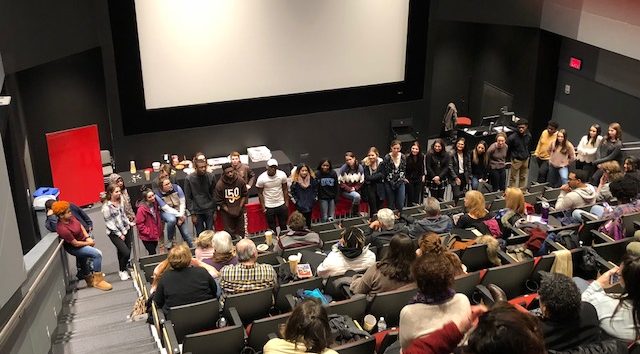Kirsten Johnson’s statement is a discussion of the dilemmas and entanglements associated with documentary ethics. Her passion is evident, as are her struggles with ethical aspects of the documentarian lifestyle. Three bulleted points stood out:
“The people I film are in immediate and often desparate material need, but I offer little to nothing material.”
“I can and will leave a place I film (a war, a refugee camp, etc.) when the people I film cannot.”
“My work can change the way my subject is perceived by the people who surround him/her and can impact reputation or safety for years into the future.”
I believe that being a successful “cameraperson” entails telling the whole truth as best as you possibly can, given certain ethical parameters; from these three points in particular, I understood this as Johnson’s goal. Her recognition of the incompleteness of her documentation allows the project to be more truthful. She is not attempting to paint an entire portrait, but simply tell the story to the best of her ability.
Struggling with ethics is a basic but burdensome task in documentary storymaking. You are making this film in order to help this group of people, and yet, you cannot always directly, immediately offer aid. You know, or at least hope, that you are doing what is best in the long run, and yet Johnson discusses an acute sense of guilt that accompanies leaving this place into which you have devoted so much energy and belief. Johnson summarizes extraordinarily well “how complex it is to film and be filmed.”
